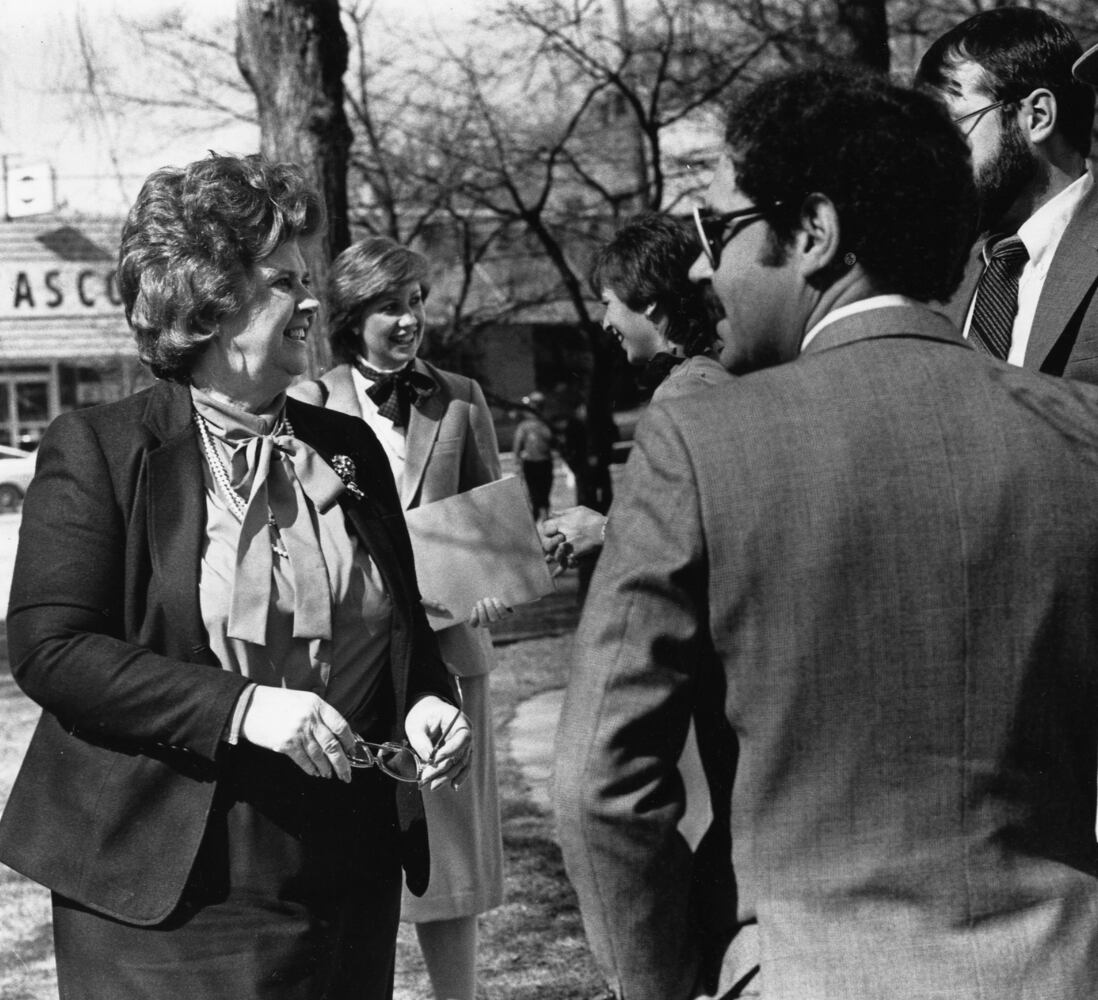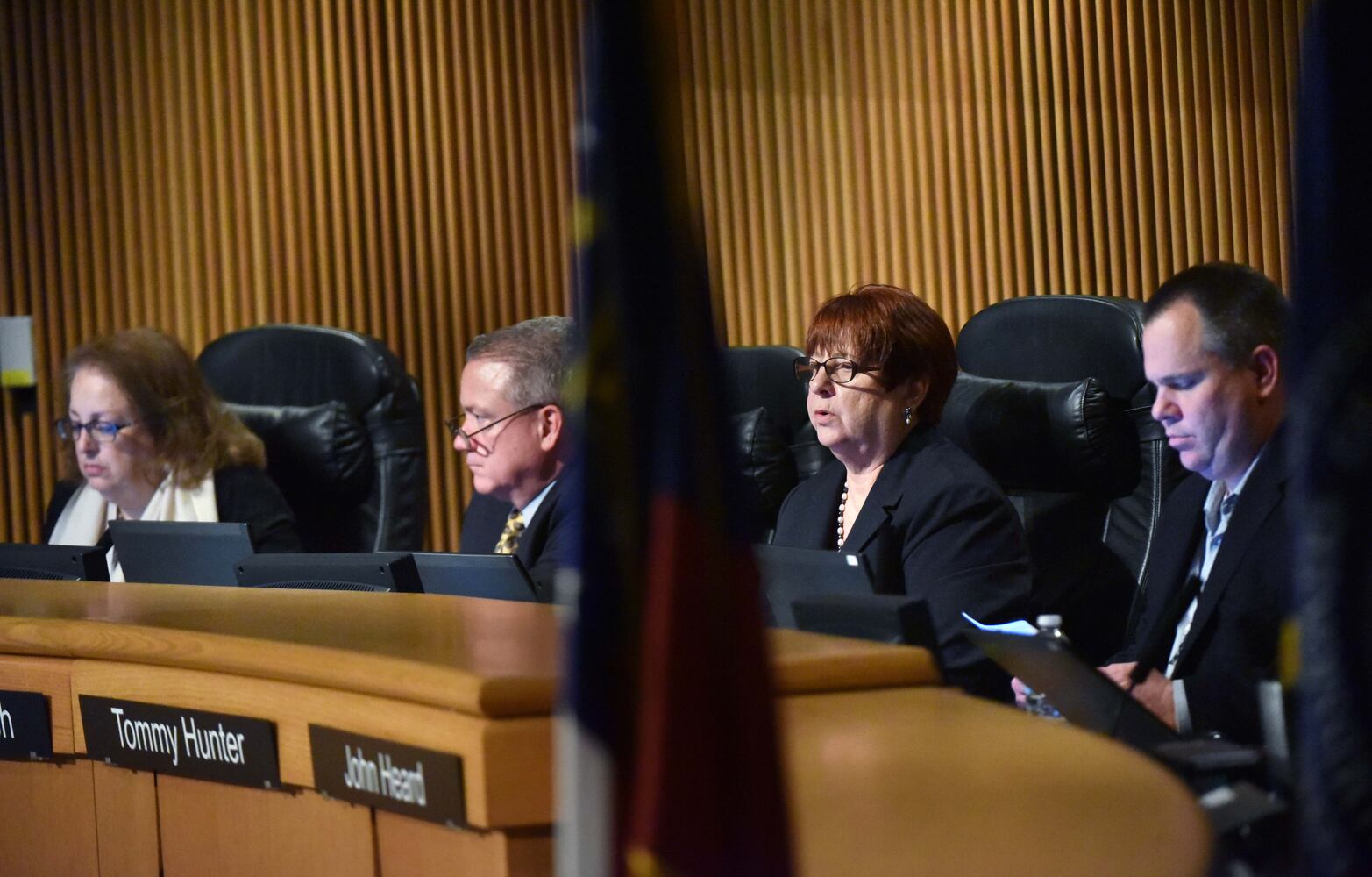The last time a Democrat served on the Gwinnett County Board of Commissioners, Ronald Reagan was president. Dale Murphy hit 29 home runs for the Atlanta Braves. And four out of 10 of today’s county residents weren’t even born.
Since 1986, Republicans have dominated politics in Georgia’s second-largest county. But Democrats are starting to show signs of life.
Last week, three stepped forward to challenge incumbent Republican commissioners, though many political observers give them little chance of winning.
Gwinnett remains dependably Republican, but the GOP’s dominance has slipped amid dramatic demographic changes. One measure: In 2000, Democratic presidential candidate Al Gore earned just 32 percent of the vote in Gwinnett, but in 2012 President Obama won nearly 45 percent.
“It’s just a matter of time, and probably not a very long time, before (Gwinnett) becomes a predominantly Democratic county,” said University of Georgia political scientist Charles Bullock.
That transformation could make Gwinnett the vanguard of a larger shift in Georgia politics. It wouldn’t be the first time.
» PHOTOS: See how Republicans came to power in Gwinnett in the '80s
For much of the 20th century, Democrats had a lock on the county, the state and much of the South. That began to change when Southerners bolted from the party as it embraced civil rights legislation in the 1960s.
Other changes also were afoot.
A population boom that began in the 1970s drew tens of thousands of new residents to Gwinnett, transforming a rural enclave into one of the fastest-growing counties in the country. A good portion of the new residents were northerners or young professionals unbound by traditional county politics or party preferences.
Many proved receptive to the Reagan Revolution. In 1980, Jimmy Carter, the incumbent Democratic president and former Georgia governor, carried his home state. But Republican Ronald Reagan carried Gwinnett County.
The first Republican won a seat on the five-member County Commission in a special election in 1983. By 1986, Republicans had defeated the last Democratic commissioner and held every countywide elected office.
The Republicans’ conquest of state politics took longer. But, by 2004, they controlled the governor’s office and both houses of the General Assembly.
But Georgia continues to change, and its minority population — which tends of vote Democratic — is booming. Non-Hispanic whites now account for 54 percent of state residents, according to the U.S. Census Bureau. A recent study found Georgia and other Southern states could become swing states in presidential elections within a decade.
If so, the transformation may again play out first in Gwinnett. Already, its population is just 41 percent white.
Whites still account for a little more than half of Gwinnett’s active voters, according to registration data maintained by the Secretary of State’s Office. But Gwinnett Democratic Party Chairman Jim Shealey believes the county’s demographics may already make the party competitive in local politics.
“The key is, can you get those minorities out to vote?” Shealey said.
Shealey is running against incumbent County Commission Chairman Charlotte Nash, a Republican. Elsewhere, Democrat Derek Johnson will challenge incumbent Republican Jace Brooks in commission District 1, and incumbent Republican Tommy Hunter faces Democrat Jasper Watkins III in District 3.
Nash said she'll run on her accomplishments, including managing the county budget through the Great Recession and restoring trust in a government wracked by corruption scandals earlier in the decade.
“I know of only one way to go at an election, and that’s to put forward my record,” Nash said. “I’m going to be talking about that record and what I think we can do moving forward.”
Rich Carithers, chairman of Gwinnett’s Republican Party, doesn’t give the Democrats much chance of unseating incumbents he says are well liked in the community. But he acknowledged the demographic challenge facing the GOP.
Carithers said he tells his fellow Republicans, “The people who are going to be the future members of this party don’t necessarily look like you and me.”
He said the party must convince a diverse population that Republican values are closely aligned with theirs.
That may be a challenge when this year’s leading Republican presidential candidate – Donald Trump – has called some Mexican immigrants criminals and rapists. Bullock said minority turnout tends to be higher in presidential election years, and Trump’s candidacy may boost it even more.
Bullock said demographic trends favor Gwinnett Democrats, who could start winning elections again as soon as 2020.
Shealey isn’t ruling out Democratic gains this year.
“The demographics of the county have changed,” Shealey said. “Whether it’s enough to get us over that 50 percent hump, I don’t know. The effort has to be there.”
A GWINNETT TIMELINE
Republicans dominate Gwinnett
Republicans have dominated Gwinnett County politics for more than a generation. Here’s a look at how they took control of the Board of Commissioners in Georgia’s second-largest county.
1980: Democrats had controlled the County Commission for as long as anyone could remember. But Republican Ronald Reagan wins Gwinnett County over home-state Democrat Jimmy Carter in the presidential election.
1983: In a special election, Norcross businessman Scott Ferguson becomes the first Republican elected to the County Commission. Democrats still hold a 4-1 edge.
1984: Republicans capture three more seats – including the chairman's post – giving the party a 4-1 majority.
1986: Republican Don Loggins defeats the commission's last Democrat, Bartow Jenkins. The GOP has held all five commission seats ever since.
1990: Democrats field candidates in both commission seats up for election, but lose both races. They won't bother to challenge Republicans for every seat again for 20 years.
2010: Democrats challenge Republicans for two open commission seats, but lose both races. The U.S. Census Bureau confirms Gwinnett has become a minority-majority county – with more black residents, Hispanics and other minorities than white people. The minority population has continued to grow, and some political observers say the county eventually will tilt back to the Democrats.
2016: Three Democrats are running against Republican incumbents – the first time in six years the Democrats have fielded a full slate of candidates.
About the Author
Keep Reading
The Latest
Featured












